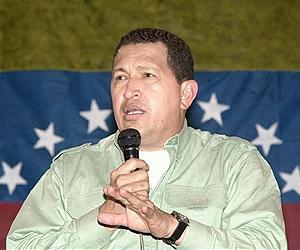 New weapon against nuclear terrorismWashington (UPI) Oct 18, 2010 - New software has been developed that adds another weapon to the U.S. arsenal in its battle against nuclear terrorism, authorities say. The National Nuclear Security Administration says its Office of Emergency Operations has developed a new X-ray image processing capability for use by the nation's emergency response community. an NNSA release reported Monday. The software, called X-Ray Toolkit, was developed specifically to be used by Explosive Ordnance Disposal and NNSA Laboratory personnel during nuclear "render safe" operations where specialized procedures, methods and tools aim to prevent the detonation of a nuclear device. Previous software converted from the medical diagnostic and imaging industry was not specifically designed for use by EOD experts, the release said. "We have received overwhelmingly positive feedback about the XTK software from our operational partners across the nation," NNSA Associate Administrator for Emergency Operations Joseph Krol said. XTK will be used by field responders and NNSA Laboratory experts to acquire, process and analyze X-ray images obtained during a potential nuclear terrorism incident. Using XTK, data from the location of a potential incident can be efficiently transferred from field responders to NNSA nuclear security experts during a crisis situation. |
Russia's agreement to build a nuclear power station and a research reactor in Venezuela has handed the Obama administration and the International Atomic Energy Agency with a headache that won't go away easily. The problem isn't so much the introduction of nuclear energy to the Latin American country, which has growing electricity needs, but the unpredictable policies of populist President Hugo Chavez.
U.S. State Department spokesman Philip Crowley said in Washington the United States hoped both Russia and Venezuela would act responsibly and adhere to IAEA rules. Comparisons with the Iran nuclear row figured in Crowley's briefing with reporters.
Any criticism of Chavez is readily equated in Caracas with ill intentions toward Chavez but oil-rich Venezuela this year won dubious distinction as the only major Latin American economy to shrink despite steady income from crude oil exports.
Prolonged outages of power and water supplies in 2009 and this year, which exacerbated popular discontent, were partly the result of severe drought but expert evidence cited in the government's own performance reports cited inefficiencies and waste.
Poor investment in the energy sector was also blamed for the energy crisis. A stopgap investment program to upgrade the infrastructure at a cost of $192 million was seen by opposition critics as too little too late.
The 500 megawatt Russian-built power station could take several years to be ready but Chavez faces elections next year and has seen his congressional majority halved in recent polls.
After a deal signed during his ninth visit to Moscow since coming to power in 1999, Chavez announced: "Venezuela is on its way to getting nuclear power. I hardly need to say so but I'll say it anyway: for peaceful purposes, of course."
Chavez added, "They'll say that we are going to build atomic bombs. No, we are not ... nothing is going to stop us, we are free, sovereign and independent."
Russian President Dmitry Medvedev said, "Our intentions are absolutely pure and open. We want our partner Venezuela to have a full range of energy possibilities."
However, the deal follows more than $4 billion of Russian military sales, at least $2.2 billion on flexible credit terms. The deal enabled Russia to transfer Soviet-era military hardware to Venezuela as part of its strategy to stimulate Russian arms industries. Included in the deal are about 100 T-72 tanks, fighter jets and helicopters, short-range missiles and 100,000 Kalashnikov rifles of an earlier make.
Opposition critics of Chavez say the arms buying is superfluous to Venezuela's needs. Chavez says Venezuela needs the weapons to defend itself against foreign adversaries among which names Colombia and the United States.
Critics say Venezuela could meet most of its energy needs through a better management of its vast hydroelectric resources and several new renewable energy projects.
Crowley said, "Any new nuclear program or activity should be conducted in accordance with the highest standards of non-proliferation, safety and security, including IAEA safeguards."
He added, "Venezuela and Russia have international obligations and we expect them to meet those obligations."








No comments:
Post a Comment